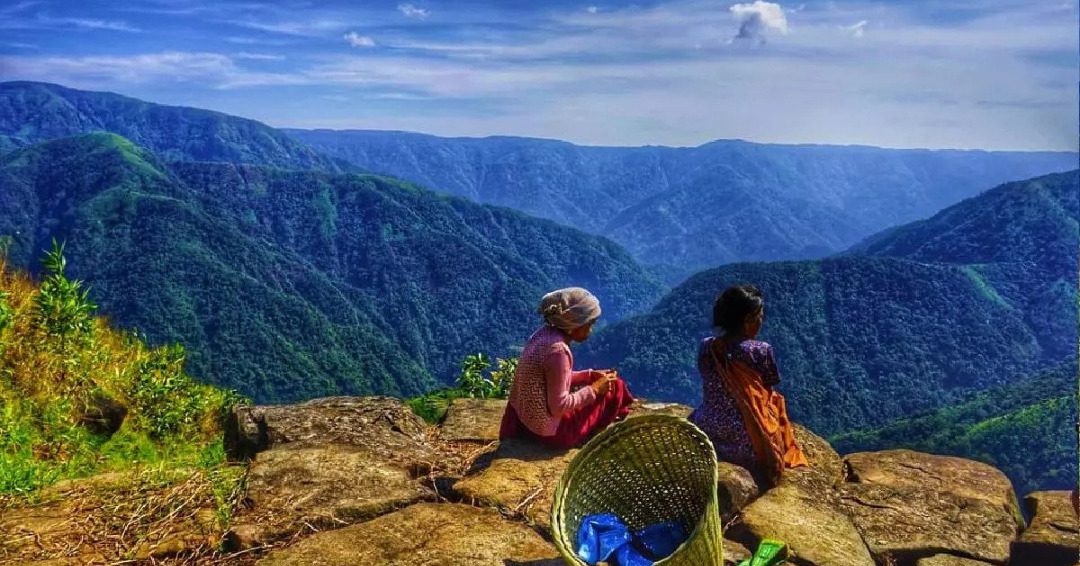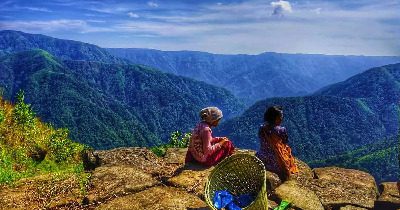(The column first appeared in BBC on November 25, 2021)
- A piercing chorus of cicadas reached my ears from the dense subtropical jungles as my car precariously navigated its way through the narrow road carved into the steep hills. Around a bend, a different tune floated across the valley – this one softer, melodious, almost eerie. A few more perilous turns later, the first houses of Kongthong came into sight, accompanied by more melodies wafting in the air as one villager called out to another. Nestled amidst the verdant East Khasi Hills in the state of Meghalaya in India’s remote north-east, the village of Kongthong is only accessible by a three-hour drive from the state capital, Shillong. Civilisation is sparse in these parts, and the village is surrounded by magnificent high ridges and dizzyingly deep gorges. It’s also home to a unique tradition called jingrwai iawbei, which has been flourishing here for centuries. According to this tradition, each newborn in Kongthong is assigned both a regular name and a distinct melodious tune at birth by their mother. While their name is only used for official purposes, this tune becomes their identity to which they respond throughout their lives. Once a person dies, their tune dies with them, never to be repeated for anyone else ever…


